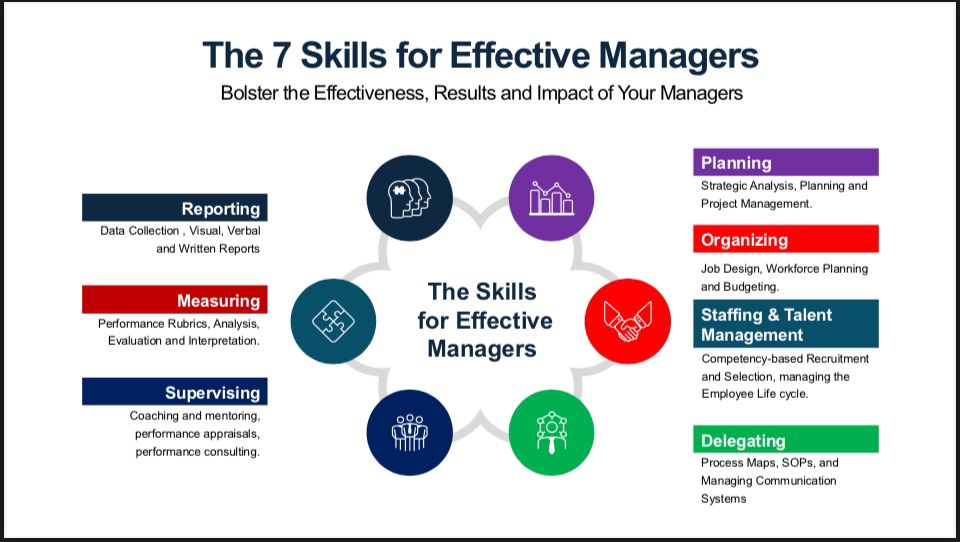Reporting Is A Critical Skill Set for Managers and Leaders
Have you ever wondered what it takes to be an effective manager? Managers form a critical part of the leadership framework of an organisation. Without being ambiguous, managers serve as a connection between the management and the rank and file. This is why having an effective manager can help your organisation become better, run sustainably, and achieve the goals and objectives for which it was set out.
My name is Kolawole Kehinde. I am a leadership and management expert who has served in leadership and management roles in select industries over the last 15 years. I will be sharing my insights on a critical skill effective managers must possess to become better at what they do. The word manage typically means effective and efficient use of resources. Managers are saddled with specific roles and responsibilities which include planning, staffing, organising, coordinating and controlling resources such as people and processes. Their ability to do these functions effectively is a function of their skills and competencies.
There are specific skills that today’s managers must possess if they intend to add value to the organisation for which they serve. Some of these skills overlap with the functions; however, doing a deep dive, the ability to carry out these functions speaks to specific skill sets that are critical for the effective discharge of their duties. There are core skills that managers must possess, such as planning, delegating, reporting, staffing and talent management, measuring, supervising and organising. While some of these skills with their functions, they are no doubt skill sets that managers must possess to become effective at what they do.
I will be speaking on the skill of reporting. Reporting comes in two ways for managers. This could come in the form of feedback or fact-finding. A report is a reproduction of an event or occurrence in a concise, clear and easily understandable way for awareness, knowledge sharing and decision making.
Managers are pivotal to people and process management in any organisation. Report writing is a formal presentation of a position devoid of bias.
Organisations that aim to operate sustainably over the years must ensure that they create a system that is credible, transparent and evidence-based in ensuring that the activities these managers engage in are captured in easily readable formats, evidence-based based and critical for effective decision making that is impactful, relevant and sustainable over the years.
Of all skills that an effective manager must possess, the ability to capture and relay information, decisions cannot be overemphasised. A critical skill that I find germane is reporting. Reporting is the ability to source, collate, analyse, interpret and communicate messages, opinions, and facts for increased awareness, knowledge sharing and decision making.
Reporting requires collecting data. These data can come in diverse forms. Presenting the report can also come in diverse forms, be it visual, verbal or in written formats. One of the tools that managers can use in the collection of data for the purpose of a report is the use of surveys. Recently, I had an engagement with the Bank of Industry for a monitoring and evaluation exercise, which required the use of surveys to collate data. Surveys have become very effective in collecting data from diverse sources, geographies and demographics. Surveys can sample opinions and, if used effectively with a triangulation framework, like observations and document reviews, or situational analysis, can help in producing evidence-based reports.
Through leveraging technology, survey administration can become very easy, helping the manager to arrive at quick decisions. Surveys serve as an effective data collection tool. Data is a form of unprocessed information that is stored and can be retrieved, processed and manipulated for further dissemination. Data comes in many forms, such as visual, verbal and written formats.
In developing reports, there are 4 stages to consider. These are
- Data collection
- Data analysis
- Data interpretation
- Data dissemination.
How to structure an evidence-based report
- Introduction
- Aim
- Method
- Results
- Discussions
- Conclusion
Reporting is a critical skill set that effective managers deploy as they carry on their roles and responsibilities.
Today we can use tools such as Microsoft Forms, Google Forms, Excel and PowerPoint to collect, analyse and present reports. Not minding the types of reports that the manager intends to create, it is important that the report must be free from bias, it must be concise, coherent and accessible to as many people as possible or those who desire to have or use them.
As managers, I want to challenge you to hone this critical skill and become a better version of yourself.




